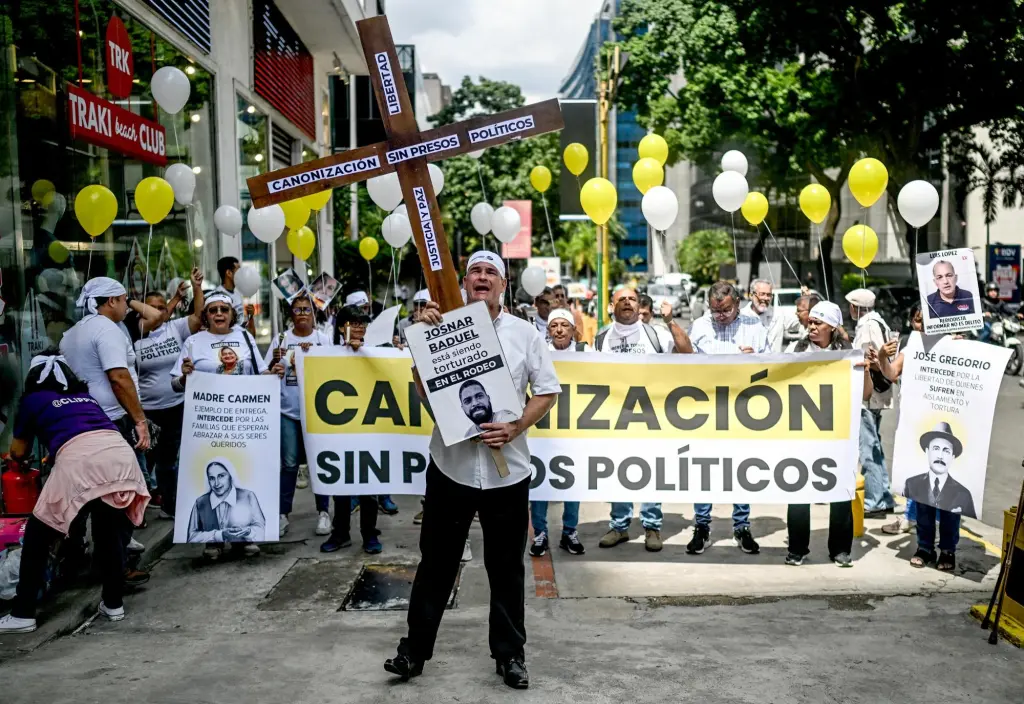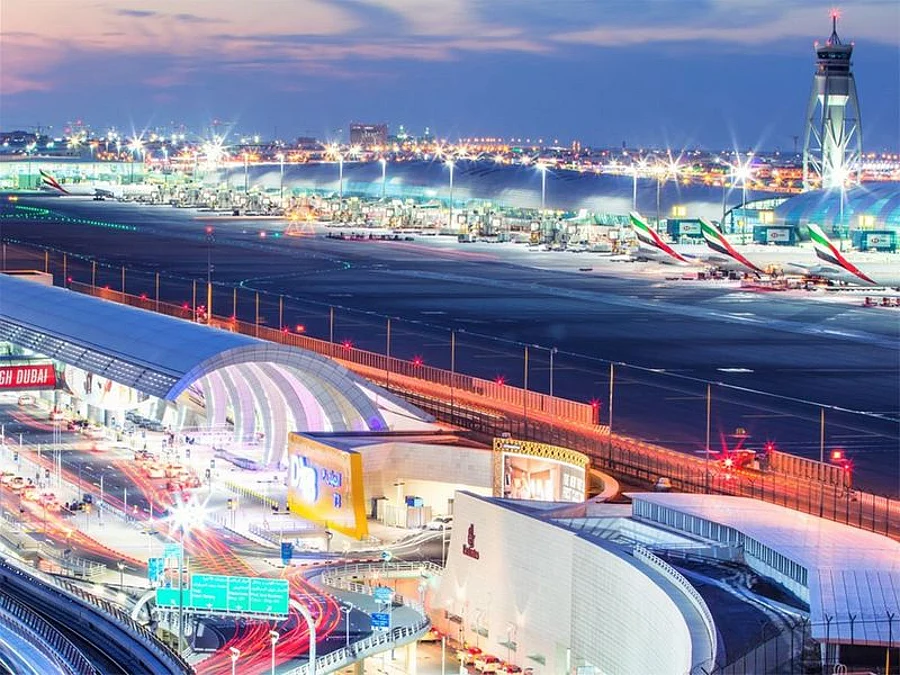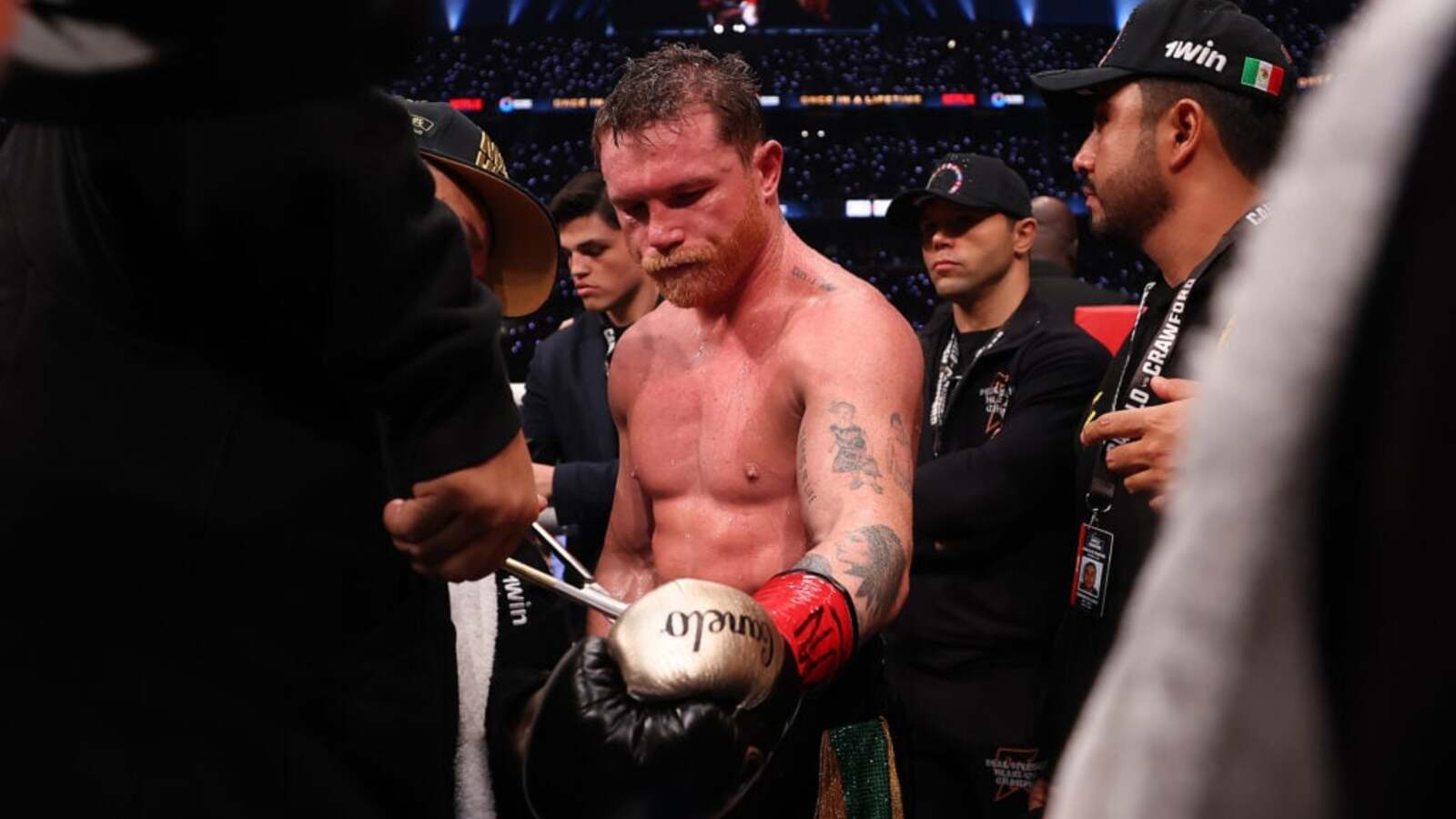
By Antonio María Delgado, Miami Herald
When hooded men seized opposition leader Freddy Superlano in Caracas in July 2024, his wife began a desperate search across the city’s detention centers. For days, she was told nothing. Then, a week later, an intelligence officer at Helicoide prison in the capital admitted he was inside. She has not seen him since.
Superlano’s wife, Aurora Silva, said she only knew he was alive because prison guards routinely handed her his dirty clothes and brief notes from him asking her to bring basic necessities to the prison.
Her story is one of many documented in a new report by Human Rights Watch and the Committee for the Freedom of Political Prisoners in Venezuela. The groups say dozens of Venezuelan political prisoners have been held with no information about them provided to their families and lawyers for weeks, months and in some cases more than a year.
“These cases of political prisoners who have been cut off from their families and lawyers are a chilling testament to the brutality of repression in Venezuela,” said Juanita Goebertus, Americas director at Human Rights Watch. “Governments should spare no diplomatic efforts to ensure that these detainees are released.”
The report, “Venezuela: Political Prisoners Cut Off from the World,” describes how relatives of detainees receive no phone calls, have no opportunity to visit and receive and no official information. Their only connection is a bag of dirty laundry or a note slipped through by guards.
“The lack of communication and denial of visits has become a form of torture, inflicting suffering not only on those behind bars but also on their loved ones,” said Sairam Rivas, a coordinator of the Committee for the Freedom of Political Prisoners and partner of political prisoner Jesús Armas. “We are forced to live in relentless anguish and uncertainty, clinging to signs of life as fragile as dirty laundry or a request for medication.”
According to Human Rights Watch, prolonged incommunicado detention can amount to torture. The Inter-American Court of Human Rights has ruled that such isolation causes “psychological suffering, placing detainees in a highly vulnerable position and increasing the risk of abuse in prisons.”
Many of the prisoners are confined in Helicoide, a former Caracas shopping mall turned intelligence-service headquarters, where United Nations investigators have documented the existence of torture rooms. Others are held in Rodeo I, a high-security prison in Miranda state, where even a single phone call is a rare concession.
Families often find their relatives only by chasing rumors, following tips, or pleading with guards. Official petitions go unanswered, and arrests are frequently denied altogether, in what the report calls enforced disappearances banned under international law.
Superlano’s wife is not alone. Across Venezuela, families have reorganized their lives around the uncertainty of detention. Some travel hundreds of miles to Caracas each week to drop off food, medicine or clothing, unsure if any of it reaches its intended recipient.
“This is really hard for the families on the outside, without knowing what is going on with them,” Silva, Superlano’s wife, said.
Many prisoners have been charged with terrorism, treason, incitement to hatred and conspiracy. Hearings are often held virtually, with families informed only after the fact. Detainees are denied the right to retain private lawyers, as paperwork submitted by relatives is rejected on the grounds that prisoners cannot sign it while incommunicado.
For relatives, the simplest interactions — a guard’s whisper, a returned shirt, a scrawled request for medicine — become vital proof their loved one is alive.
“Our only way to show our love and that we think about them is by sending food, clothes and medication,” one family member said.
The report details cases across Venezuela’s opposition ranks. Among them:
Perkins Rocha, a lawyer for Vente Venezuela, who was abducted in August 2024. His wife recalled how guards occasionally handed her scraps of paper with his handwriting. Since August 2025, relatives delivering packages have been photographed holding their bags. “It’s very degrading,” she said. “Incommunicado detention is torture for all of us. We are all hostages along with him.”
Biagio Pilieri, journalist and national coordinator of the party Convergencia, who was detained in August 2024. His wife described being denied visits despite his serious health problems. “Being unable to see him has been inhumane and painful,” she said.
Jesús Armas, a former Caracas councilman, who told his partner during a brief phone call that intelligence officers “suffocated him with a bag over his head as they interrogated him.” Since being transferred to the Helicoide prison, “he has been without any contact with the outside,” Rivas said.
Luis Palocz, an activist abducted in December 2024, managed to send a note requesting personal items. “The first time I saw his handwriting, it was a relief,” his partner said. But restrictions on deliveries deepened her despair: “I can’t explain what it’s like to have that contact taken away when we have no visits and no letters.”
Luis Somaza, a Voluntad Popular leader, was dragged from his home in February 2025. His sister said she recognized his laundry by “stains caused” by Somaza’s chronic inflammatory illness. She added: “The family lives in constant anguish, caught between not knowing how he is and fearing reprisals for speaking out.”
©2025 Miami Herald. Visit at miamiherald.com. Distributed by Tribune Content Agency, LLC.



